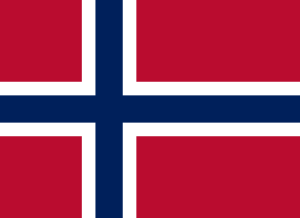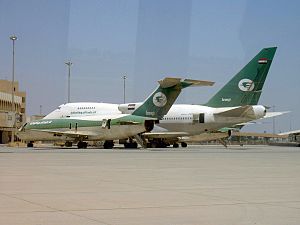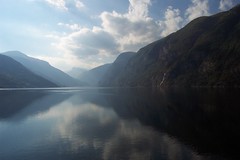| Image via Wikipedia |
Correction: This story has been corrected to reflect new information that another Iraqi Kurdish asylum seeker, whose story had strong similarities and had also been reported in the Norwegian media, was in fact a different person. That Iraqi has been granted asylum. His name and picture have been removed from this story at his request.
A gay Iraqi has been refused Norwegian asylum and told to 'go home and be discrete'.
The High Court accepted that 'Azad' was gay and that gay men in Iraq are at risk, including at risk of being killed, but it ruled that 'Azad' must comply with Iraq's socio-cultural norms'.
'Azad' is a Kurd and the Immigration authorities claimed that risks to gay men in the Kurdish region "differs greatly" from the rest of Iraq and that he can seek protection from the Kurdish autonomous region's authorities.
His lawyer, Jon Ole Martinsen, said that:
"In practice it means to hide your sexual orientation, for if it is discovered you will be in danger of being persecuted."'Azad' told the Norwegian Broadcasting Corporation (NRK) that:
"My clan is going to kill me. Gays and lesbians cannot live openly in Iraq."So-called 'honor killing' is a major problem in the Kurdish region of Iraq.
Last month a report emerged of police raiding a gay party in Kalar, a small town in Kurdistan, arresting 25 men.
In September the U.N. High Commissioner for Human Rights (OHCHR) and the U.N. Assistance Mission for Iraq (UNAMI) released a report which said that attacks on LGBT in Iraq had continued in 2010.
'Azad' has been in a relationship with Norwegian Odd Arne Henriksen since they met in 2006. Henriksen said that if 'Azad' was sent to Iraq he would go with him.
"In our family we don't give up so easily. We stand at the very end," he told NRK.
Last year, in a landmark decision, the British Supreme Court, in a case involving a Cameroonian and an Iranian, decided that gay or lesbian asylum seekers could not be told to 'go home and be discrete'.
Martinsen said that 'Azad''s case will now be taken up to the Norwegian Supreme Court.
In the last two years, 40 of 52 gay people seeking asylum have been rejected according to Norwegian government figures. The Ministry of Justice said in an e-mail to NRK that they are considering changing how LGBT asylum cases are dealt with.
"They must say that it cannot be required of each applicant to hide his [sexual] orientation on return", says Martinsen.
"Norway should be a leader that protects everyone, regardless of sexual orientation."Other European countries, including France, do not return Iraqis and UNHCR continues to say it is unsafe to return asylum seekers to Iraq.
Last week the Iraqi Minister of Immigration Dindar Najman told AKnews that Baghdad airport will no longer admit Iraqis who are deported from Europe by force.
The International Federation of Iraqi Refugees (IFIR) have repeatedly accused the Iraqi government of signing a deal with European countries which deport Iraqis in return for dropping Iraqi debts. Among the countries that have started forced deportations via Baghdad since 2005 are Sweden, Denmark, Norway and Finland.
According to the IFIR 5,000 to 6,000 Iraqi refugees, most of them Kurds, have been deported from Europe since then.
Kurdistan-based chief of IFIR, Amanj Abdulla, told AKnews no European country has tried to send any refugee back to Iraq since the decision was made so the authority's resolve to enforce this ban remains untested.
Nevertheless, he valued the decision as "a positive step in favor of Iraqi refugees".














![Reblog this post [with Zemanta]](http://img.zemanta.com/reblog_e.png?x-id=0bff8fc3-d3f8-468f-be8b-f85b19585977)


![Reblog this post [with Zemanta]](http://img.zemanta.com/reblog_e.png?x-id=e9823c2d-deea-481d-93e6-1340f389cf53)





 Join our page
Join our page

